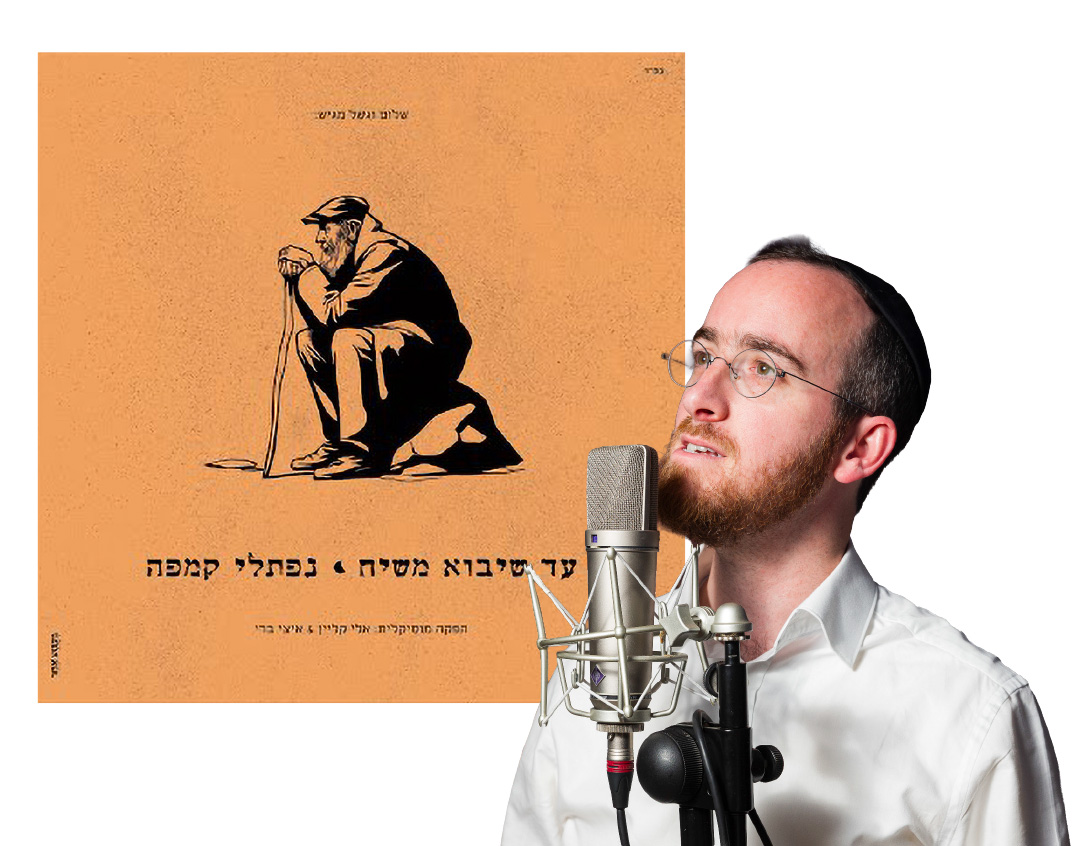Shorter Is Better
| February 8, 2022“It’s five songs, five different styles, and it’s not boring for a second”

There’s always something new in Jewish music, although sometimes old is the new new. RABBI SHLOIME TAUSSIG’s recent release of an EP called 5 KOLOS is a surprise departure from Jewish music’s standard choice of either singles or full-length albums. Short for “Extended Play,” EPs have been around in the general music world since the 1950’s reign of vinyl records. Originally, they were musical recordings of up to 30 minutes on 7-inch or 10-inch records, as opposed to the LP (Long Play) full-album format on 12-inch records, which carried 23 minutes per side. Today, EPs refer to mid-length CDs and downloads as well.
A full-length album usually contains 10 to 12 songs, whereas an EP has between two and five tracks. Rabbi Taussig, who’s already released three albums and six singles — among them hits such as “Lashem Haaretz,” “Mai Dehave,” and “Ein Gedulah… Zug Nisht far Basheffer” — explains that his decision to produce an EP was made for artistic as well as practical reasons.
“When a singer releases an album of ten songs, he hopes each one will be a hit, but when all is said and done, though, that’s impossible. Even a musical ear can’t hear so well after so many songs. Often, three-quarters of the album just falls away, becoming irrelevant.”
He also acknowledges that the investment required to produce a full album is daunting — and sales alone don’t recoup the vast outlay.
“On the other hand, singles are released so frequently today that it’s difficult for them to make a real impression — time and again, they just get lost in the crowd. That’s why we decided to try this format.” With the exception of the 2012 Miami Boys Mizrach album, it hasn’t been done until now in the chassidic music industry.
The lower production costs are directly felt by the consumer — the album retails at $7.99 — and due to the shorter length, purchasers tend to play the album on repeat, getting to know the music with less interruption.
Reb Shloime first sat down with his Jerusalem-based composers and producers Eli Klein and Yitzy Berry a year before the pandemic closed down travel. A year and a half later, when he was able to travel again, 5 Kolos was created. “It’s five songs, five different styles, and it’s not boring for a second,” he guarantees.
The fifth track, their “Mimaamakim” composition, was already being discussed in 2020. “I really liked it, but we didn’t end up closing on anything then. A year and a half later is like a new generation for Eli and Yitzy, and they had hundreds of new songs available, but I asked if “Mimaamakim” was still available, and it was.”
While in the past he’s recorded vocals in America and sent on to Yitzy and Eli for them to mix and master, this time Rabbi Taussig was persuaded to record in the team’s Har Nof studio.
“My close friend, the producer of my first two albums, Yossi Tyberg, and my friends Ahrele Samet and Zanvil Weinberger, all pushed me to go record with Klein and Berry. As they composed and arranged the songs, they know every nuance, and besides, they have a reputation for being able to push a singer’s limits. I don’t regret it for a second. I’m in this business for 18 years, and usually, when you finish a recording project, you need a break from the pressure. Somehow, this time, I feel ready to start working on the next project right away.”
UNLIKELY INSPIRATION
Someone once asked me to write a song about the power of tefillin. I wasn’t sure that belonged in a song, because it’s more a mussar topic, but while I was thinking it over, someone in shul came over to me and showed me the words, “Mi anochi she’ezkeh lehispallel — Who am I that I should be worthy of praying before the Great and Awesome G-d?” The words jumped out at me, and I thought this would resonate more than a song about tefillin alone. That’s how “Davenen” was born.
– Hershy Weinberger
(Originally featured in Mishpacha, Issue 898)
Oops! We could not locate your form.





